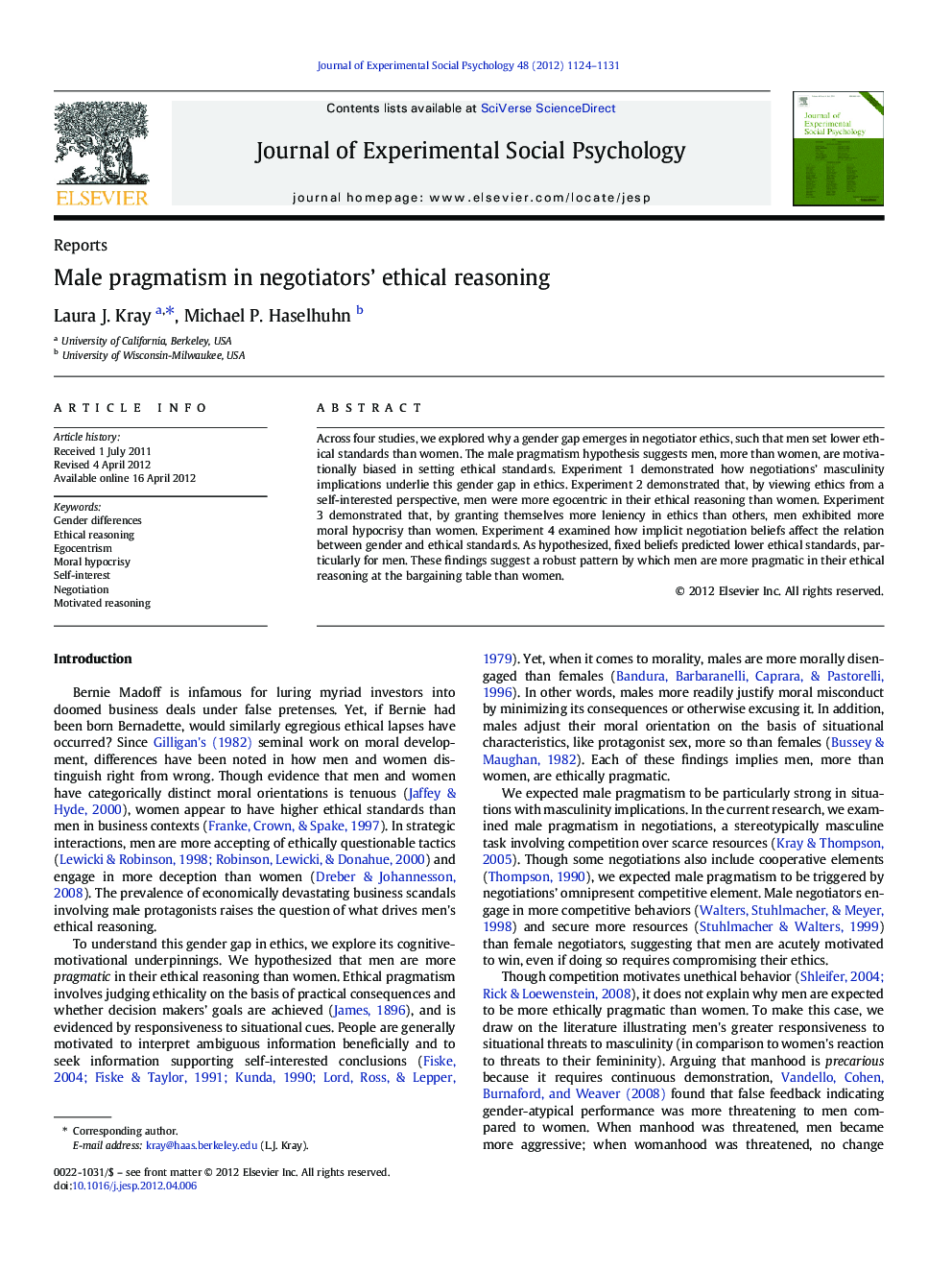| Article ID | Journal | Published Year | Pages | File Type |
|---|---|---|---|---|
| 948048 | Journal of Experimental Social Psychology | 2012 | 8 Pages |
Across four studies, we explored why a gender gap emerges in negotiator ethics, such that men set lower ethical standards than women. The male pragmatism hypothesis suggests men, more than women, are motivationally biased in setting ethical standards. Experiment 1 demonstrated how negotiations’ masculinity implications underlie this gender gap in ethics. Experiment 2 demonstrated that, by viewing ethics from a self-interested perspective, men were more egocentric in their ethical reasoning than women. Experiment 3 demonstrated that, by granting themselves more leniency in ethics than others, men exhibited more moral hypocrisy than women. Experiment 4 examined how implicit negotiation beliefs affect the relation between gender and ethical standards. As hypothesized, fixed beliefs predicted lower ethical standards, particularly for men. These findings suggest a robust pattern by which men are more pragmatic in their ethical reasoning at the bargaining table than women.
► Male negotiators are more pragmatic than female negotiators. ► Male negotiators are more egocentric than female negotiators. ► Male negotiators are more morally hypocritical than female negotiators. ► Motives to prove oneself moderate the relation between gender and ethics.
